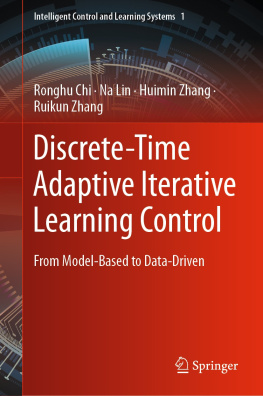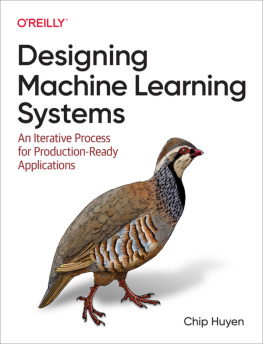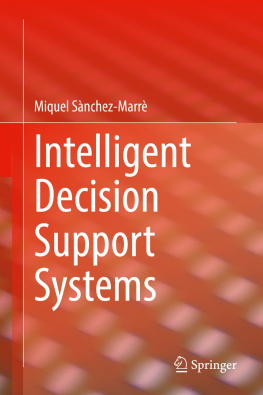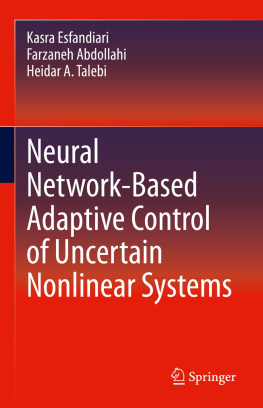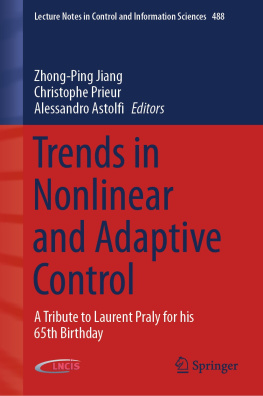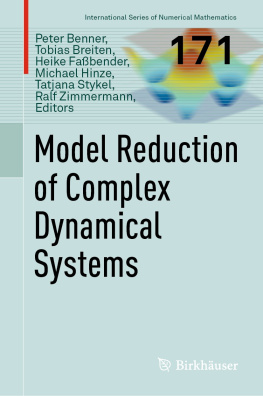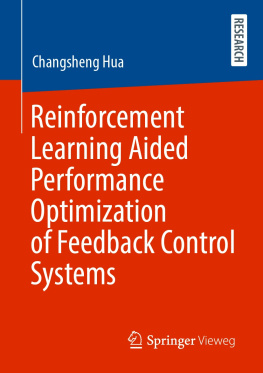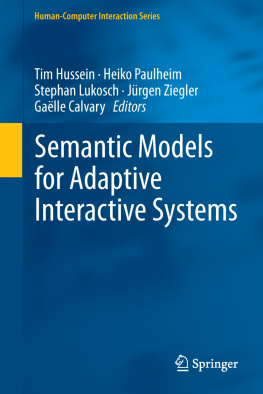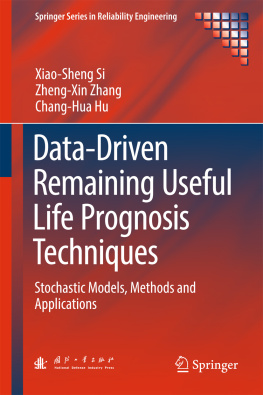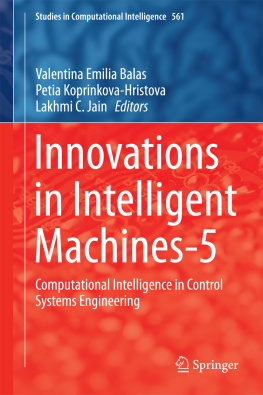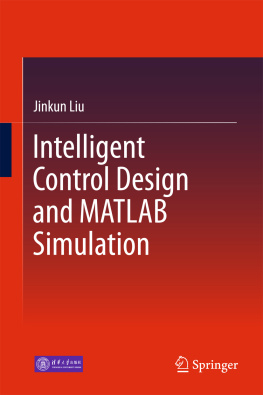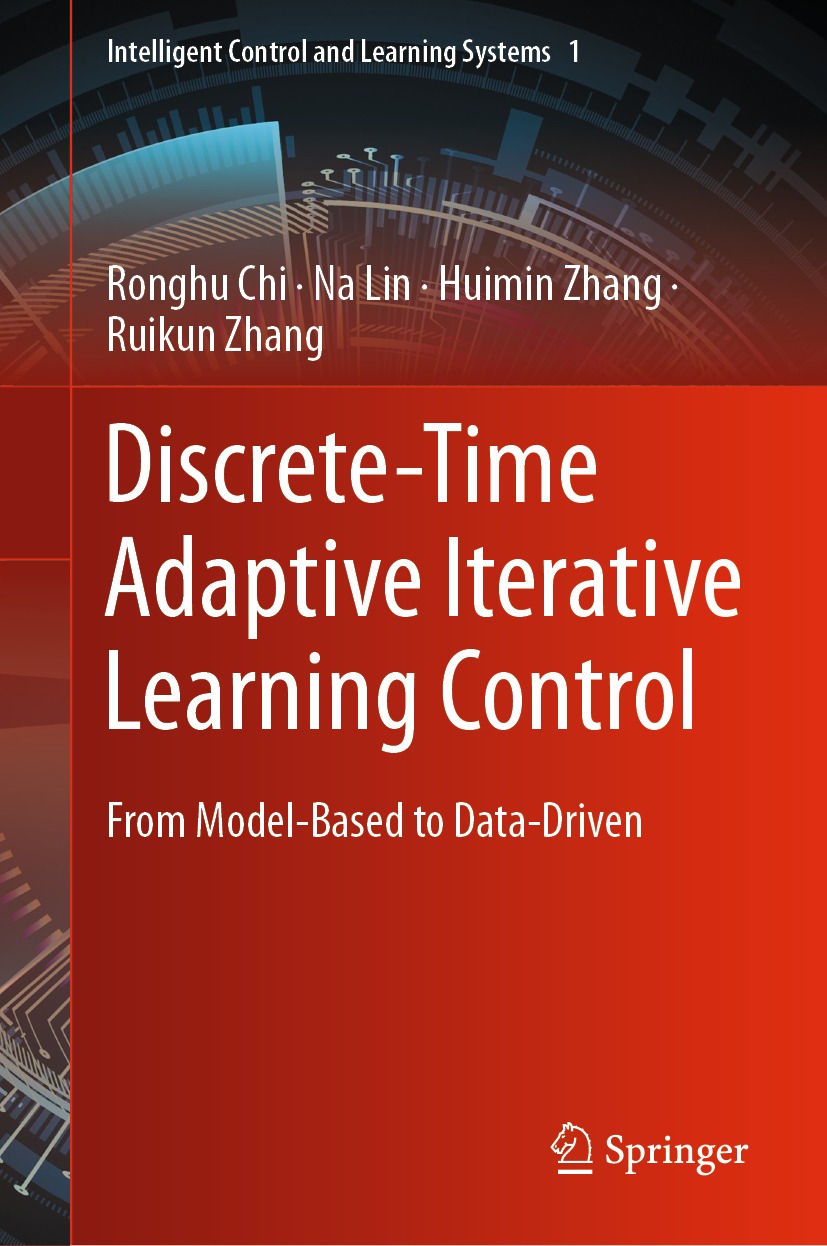Volume 1
Intelligent Control and Learning Systems
Series Editor
Dong Shen
School of Mathematics, Renmin University of China, Beijing, Beijing, China
The Springer book series Intelligent Control and Learning Systems addresses the emerging advances in intelligent control and learning systems from both mathematical theory and engineering application perspectives. It is a series of monographs and contributed volumes focusing on the in-depth exploration of learning theory in control such as iterative learning, machine learning, deep learning, and others sharing the learning concept, and their corresponding intelligent system frameworks in engineering applications. This series is featured by the comprehensive understanding and practical application of learning mechanisms. This book series involves applications in industrial engineering, control engineering, and material engineering, etc.
The Intelligent Control and Learning System book series promotes the exchange of emerging theory and technology of intelligent control and learning systems between academia and industry. It aims to provide a timely reflection of the advances in intelligent control and learning systems. This book series is distinguished by the combination of the system theory and emerging topics such as machine learning, artificial intelligence, and big data. As a collection, this book series provides valuable resources to a wide audience in academia, the engineering research community, industry and anyone else looking to expand their knowledge in intelligent control and learning systems.
More information about this series at https://link.springer.com/bookseries/16445
Ronghu Chi , Na Lin , Huimin Zhang and Ruikun Zhang
Discrete-Time Adaptive Iterative Learning Control
From Model-Based to Data-Driven

Logo of the publisher
Ronghu Chi
College of Automation and Electronic Engineering, Qingdao University of Science and Technology, Qingdao, China
Na Lin
College of Automation and Electronic Engineering, Qingdao University of Science and Technology, Qingdao, China
Huimin Zhang
College of Automation and Electronic Engineering, Qingdao University of Science and Technology, Qingdao, China
Ruikun Zhang
College of Mathematics and Physics, Qingdao University of Science and Technology, Qingdao, China
ISSN 2662-5458 e-ISSN 2662-5466
Intelligent Control and Learning Systems
ISBN 978-981-19-0463-9 e-ISBN 978-981-19-0464-6
https://doi.org/10.1007/978-981-19-0464-6
The Editor(s) (if applicable) and The Author(s), under exclusive license to Springer Nature Singapore Pte Ltd. 2022
This work is subject to copyright. All rights are solely and exclusively licensed by the Publisher, whether the whole or part of the material is concerned, specifically the rights of translation, reprinting, reuse of illustrations, recitation, broadcasting, reproduction on microfilms or in any other physical way, and transmission or information storage and retrieval, electronic adaptation, computer software, or by similar or dissimilar methodology now known or hereafter developed.
The use of general descriptive names, registered names, trademarks, service marks, etc. in this publication does not imply, even in the absence of a specific statement, that such names are exempt from the relevant protective laws and regulations and therefore free for general use.
The publisher, the authors and the editors are safe to assume that the advice and information in this book are believed to be true and accurate at the date of publication. Neither the publisher nor the authors or the editors give a warranty, expressed or implied, with respect to the material contained herein or for any errors or omissions that may have been made. The publisher remains neutral with regard to jurisdictional claims in published maps and institutional affiliations.
This Springer imprint is published by the registered company Springer Nature Singapore Pte Ltd.
The registered company address is: 152 Beach Road, #21-01/04 Gateway East, Singapore 189721, Singapore
Preface
This monograph studies the design and analysis of discrete-time adaptive iterative learning controller for discrete-time systems. Iterative learning control (ILC) is a well-known method for systems that operate repeatedly over a finite time interval, such as batch reactor processes, wafer manufacturing, robot arms, and high-speed train operations. ILC has received many attentions with excellent results and successful applications since it can achieve a precise tracking by generating an optimal input to the system by learning from iterative operations. However, the well-known contraction mapping-based ILC may perform poor when encountering large non-repetitive uncertainties in applications because the gains used in the proportional, integral, and differential learning algorithms are usually fixed and remain unchanged once being chosen properly. Meantime, the same obvious disadvantage may appear in the optimization-based ILC methods since their learning gains are also fixed once been computed. This monograph mainly explores discrete-time adaptive ILC (DAILC) by referring to the fundamental tools of the discrete-time adaptive control design and analysis to deal with non-repetitive uncertainties of the system to be controlled.
Different from the composite energy function (CEF)-based adaptive ILC for continuous-time systems, this monograph aims at discrete-time systems directly and removes the assumption of identical initial condition used in the continuous-time adaptive ILC. Various different DAILC methods are designed for different classes of plants to facilitate real applications. Eventually, this monograph explores how to remove the model-dependence in both the continuous-time and discrete-time adaptive ILC by introducing an iterative dynamic linearization method to deal with the complex nonlinear nonaffine systems in practice.
Readers of the monograph will learn how to design DAILC methods by using the well-known discrete-time adaptive control methods. Additionally, by considering data-weighted factors, nonlinearity estimators, and neural networks, different DAILC methods are established consequently, leading the reader to understand the fundamental extensions of DAILC. Further, the readers can generate breakthrough ideas and insights by learning the significant extensions from model-based DAILC to data-driven DAILC.
The monograph, which has 9 chapters, is organized into two parts. Chapter explores the consensus tracking problem of DAILC for multi-agent systems.
Part II of this monograph presents the data-driven design and analysis of DAILC for nonlinear nonaffine discrete-time systems without depending on any mechanistic model information of the systems. Chapter explores the terminal tracking tasks and presents several data-driven terminal DAILC methods.
The research reported in this monograph has benefited greatly from collaborations with a number of Ph.D. students and input from many friends and collaborators worldwide, and it would simply be impossible to ensure that we included them all by name here. We do, however, acknowledge Prof. Jian-Xin Xu, National University of Singapore, who died in 2018, for his excellent work on the CEF-based AILC, which established this research area. The first author would like to express his appreciation to his doctoral supervisor, Prof. Zhongsheng Hou, Qingdao University, for his guidance over the years and contributions to this monograph. Meantime, the first author wants to express the greatest conceivable gratitude that is owed to his wife and son, Puzhao Li and Yongqing Chi, for their sacrifice, patience, and understanding throughout his studies and his research. Without their support and love, he could not have completed this monograph. We are grateful to our co-authors and colleagues, Biao Huang, University of Alberta, Shangtai Jin, Beijing Jiaotong University, Chiang-Ju Chien, Huafan University, Yu Hui, Beihang University, Rongrong Wang, Shandong University of Science and Technology, and Xuhui Bu, Henan Polytechnic University, for their helpful discussions and comments. Financial support from the National Science Foundation of China under Grant 61873139 and the Taishan Scholar Program of Shandong Province of China is gratefully acknowledged. Finally, we must thank the able team at Springer-Verlag, especially Dharaneeswaran Sundaramurthy, Nobuko Kamikawa, and Mengchu Huang for their great work contributed to the successful completion.

